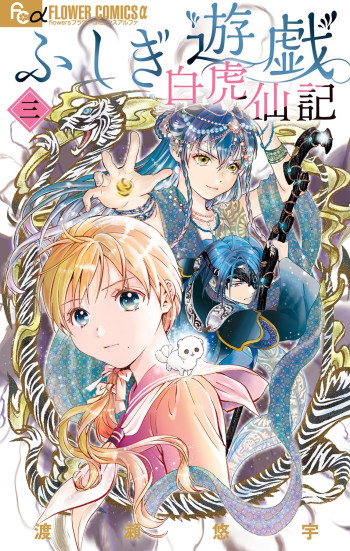
Sumanika
by M. Lovely
He saved me from the burning pyre of my late husband and in exchange I gave him a lifetime of devotion.
My marriage with my late husband could not called a marriage for several reasons. Despite managing my single life alone as the head maid of the Suryagarh’s Kingdom I had been dragged and tied to a large pile of woods on which my husband’s corpse was lying. When I left all the hopes of living a life and submitted myself to the large and heavy flames of fire, he came to protect me.
Out of nowhere, without any support and clue.
But, in order to save my life he had to make me his bride. He filled the partition of my hair with the warm thick blood of his, knowing he was getting married to a beautiful Princess in next six months.
I promised to forget this incidence and move on in my life. But, he was the youngest Prince of Suryagarh and living in the same Kingdom, we could not escape each other, especially the game of power, care and domination our eyes were playing. And, most importantly the pull that was taking birth between us.
Our marriage, the little, forbidden, incomplete marriage was a secret for everyone.
But, could it be a secret to my heart? Could it be a secret, forgettable thing to us? Could it be kept as a secret for the lifetime? Could I see him getting married to someone else knowing he took a oath of protecting me? Could we be able to see each other moving on forgetting what happened? Could we be able to subside the encounters future was awaiting for us?
.
Read
Sumanika on http://kissnovel.net
Martial Peak Reviews
M. Lovely's Sumanika is a poignant exploration of love, duty, and societal constraints set against the backdrop of the Suryagarh Kingdom. The narrative is deeply rooted in the cultural and historical context of ancient traditions, where the protagonist's journey unfolds with a blend of emotional intensity and subtlety. The book delves into the complexities of human relationships, particularly focusing on the themes of sacrifice, devotion, and the struggle for personal freedom.
The story begins with a dramatic and heart-wrenching scene where the protagonist, Sumanika, is saved from the ritual of sati—a practice where a widow is immolated on her husband's funeral pyre. This act of salvation by the youngest Prince of Suryagarh sets the stage for a narrative that is as much about personal redemption as it is about societal change. The prince's decision to save Sumanika by marrying her, albeit in a secret and unconventional manner, introduces a dynamic that challenges the norms of their society.
Character development is one of the strongest aspects of Sumanika. M. Lovely crafts Sumanika as a resilient and complex character. Her evolution from a resigned widow to a woman who grapples with her newfound freedom and the implications of her secret marriage is portrayed with depth and sensitivity. Sumanika's internal conflict and her journey towards self-discovery are central to the narrative, making her a relatable and compelling protagonist.
The prince, on the other hand, is depicted as a man torn between his duties as a royal and his personal convictions. His decision to save Sumanika is not just an act of heroism but also a reflection of his inner turmoil and desire to challenge the oppressive traditions of his time. The chemistry between Sumanika and the prince is palpable, and their interactions are charged with unspoken emotions and a sense of inevitability. The author skillfully portrays their relationship as a delicate balance of power, care, and unacknowledged love.
Sumanika also explores the theme of forbidden love and the societal pressures that come with it. The secret marriage between Sumanika and the prince is a metaphor for the hidden desires and unfulfilled dreams that many individuals experience in a society bound by rigid norms. The narrative raises poignant questions about the nature of love and duty, and whether true love can ever be kept a secret. The tension between personal desires and societal expectations is a recurring motif, adding layers of complexity to the story.
The setting of the Suryagarh Kingdom is vividly brought to life through M. Lovely's descriptive prose. The author paints a rich tapestry of the kingdom's culture, traditions, and politics, providing a backdrop that enhances the narrative's emotional depth. The historical context is seamlessly woven into the story, offering readers a glimpse into a world where personal freedom is often sacrificed at the altar of tradition.
In terms of overall impact, Sumanika is a thought-provoking and emotionally resonant novel. It challenges readers to reflect on the nature of love, sacrifice, and the courage it takes to defy societal norms. The book's exploration of these themes is both timeless and relevant, making it a compelling read for anyone interested in stories that delve into the human condition.
Comparatively, Sumanika shares thematic similarities with other works that explore forbidden love and societal constraints, such as Khaled Hosseini's A Thousand Splendid Suns or Arundhati Roy's The God of Small Things. Like these novels, M. Lovely's work is a testament to the enduring power of love and the resilience of the human spirit in the face of adversity.
In conclusion, Sumanika is a beautifully crafted novel that offers a rich and nuanced exploration of love, duty, and societal change. M. Lovely's ability to create complex characters and weave a narrative that is both emotionally engaging and thought-provoking makes this book a standout in its genre. For readers seeking a story that combines historical depth with a compelling personal journey, Sumanika is a must-read.























Reviews 0
Post a Reviews: